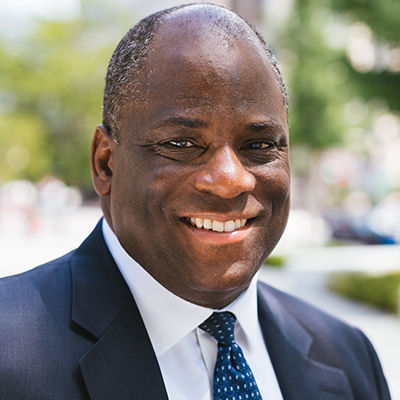2023 National Day of Racial Healing
A message from Council for a Strong America President and CEO Barry Ford
Related

The National Day of Racial Healing is an opportunity for reflection and introspection that follows on the Tuesday after the Martin Luther King, Jr. holiday. The W.K. Kellogg Foundation has created a series of national events highlighting the importance of this day, with the intention of changing narratives, facilitating trust, building authentic relationships, and bridging divides.
These events also underscore the numerous ways in which our nation must continue to strive for a more just and equitable society, including education, nutrition, and health.
We at Council for a Strong America believe that directly addressing the systems that produce racial disparities in education and health will expand opportunity and ensure that every child can grow up safe, secure, healthy, and well-educated. These efforts at systems change are also foundational to the goal of maintaining the strength of our nation for decades to come.
This understanding informs our work. As we strive toward better educational, health, and life outcomes for children, we likewise strive to ensure that a child’s race, ethnicity, financial circumstances, or zip code don’t prevent that young person from having the support they need to reach their full potential. This is a core value for me as President and CEO of Council for a Strong America.
One example of how our work intersects with these efforts is in the Mississippi Early Childhood Investment Council (ECIC). Initiated and organized by ReadyNation, Council for a Strong America’s business leader membership group, the ECIC is a body comprised of key business leaders in Mississippi who are concerned about the future of the state’s children and its economy.
Mississippi has the highest percentage of African Americans of any state in the country, at nearly 38 percent. ECIC members are specifically engaged in positive policy outreaches directed to areas such as Jackson and the Mississippi Delta that significantly impact communities of color.
For those reasons and more, the ECIC continues to intentionally build out a fully diverse membership by race, ethnicity, gender, geography, and ideology. It does so to reflect the diversity of Mississippi fully, but also to better support enhancing equity and reaching vulnerable, traditionally underserved communities. Our efforts in Mississippi are intentional about pursuing equity in all aspects of our work—from our goals on behalf of historically underrepresented groups to our organizational structure to our staff development.
I believe that it is a moral imperative to find ways to uplift these communities. But, beyond the moral implications, I also strongly believe that doing so is essential to achieving the larger goal of strengthening our nation.
In other words, these goals aren’t at odds. They are intertwined. Removing the barriers that prevent some children from reaching their potential is essential to both.
That sometimes becomes a difficult message to communicate in these deeply ideologically divided times. However, by recruiting, educating, and mobilizing business, military, and law enforcement leaders to champion evidence-based public policies and investments that improve the lives of children and families, we believe we can (and do) find solutions and rationales that can appeal to a broad, diverse swath of policymakers and members of the public.
On this National Day of Racial Healing, we at CSA renew our commitment to creating a stronger nation—one that is just, equitable, and vibrant. I hope you will join CSA members, staff, and partners in these efforts. For more information on CSA and our work, please visit www.strongnation.org.
Barry D. Ford
President and CEO
Council for a Strong America
Related
Read More About
States

